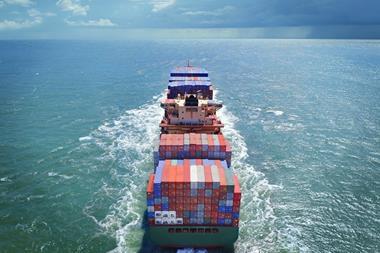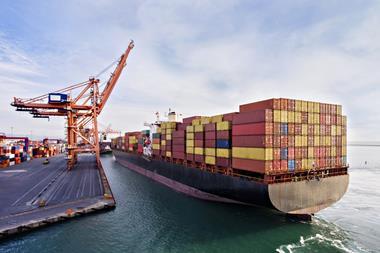The 8-day strike will add to current supply chain woes, with Maersk warning of a ‘significant impact’
Proposed strike at the port of Felixstowe could result in over $800 million in trade being disrupted according to the ALPS Marine analysis by Russell Group.
The UK’s largest container port is heading for an 8-day strike after mediation talks with the unions representing port workers reached an impasse.
Unite held to its announcement that the strike of over 1,900 members would begin on 21 August over a dispute about a pay increase.
Carriers are predicting “huge disruptions” throughout the UK supply chain. In an advisory to customers, Maersk wrote, “We expect the strike action to have significant impact to the vessel line up and are actively working along with vessel partners to mitigate risk and disruption as much as possible”, adding it would “not be diverting any cargo to other UK or North European ports”.
Clothing ($82.8m) and electronic components ($32.3m) are commodities that would be most impacted by the strike, finds Russell. The analysis was based on previous trade flows at Felixstowe in this August period.
Further supply chain disruption
Many leading businesses are concerned about the impact that the strike will have on supply chains. It is taking significantly more time, for logistics and risk management experts to plan their strategies, which means they have had to throw extra resources to address shipping issues, for example, that previously were not a problem.
A period of calmer waters will be welcomed by everyone throughout industry supply chains, noted Suki Basi, Russell Group MD:
“The disruption at Felixstowe spells more uncertainty for businesses, consumers and governments alike. Ports across the globe are facing congestion, due to a large backlog caused by the pandemic.
“As our analysis has shown today, these strikes could increase the backlog and in doing so, create even more delays, and the effects of this will only be registered in the coming weeks and months.”
Beyond the UK, Felixstowe plays a crucial role in global trade, feeding UK exports to larger European ports including Rotterdam ($108 million) and Hamburg ($138 million).
Many experts believe that because of the disruption at Felixstowe, trade will be diverted to smaller ports in the UK but also other international ports including Wilhelmshaven, Germany, which has a significant higher trade inflow than Felixstowe at this same period, at around $1 billion.
It comes as low water levels on the Rhine river cause further trade disruption within Central Europe and, in particular, Germany.
Water levels on the Rhine river are very low because of unusually hot and dry weather, preventing many vessels from navigating the critical European shipping route fully loaded.




















No comments yet